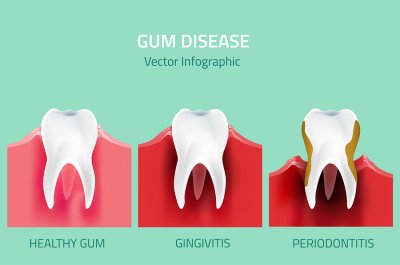Answering Common Questions About Gum Disease

Often underestimated by individuals, the gums play a significant role in the overall oral health, so periodontal problems should not be ignored. If you have been diagnosed with gum disease in Westlake, then continue reading to learn the answers to common questions about this condition.
What Are the Symptoms of Gum Disease?
Gum disease symptoms can vary depending on the stage of the condition. Early on, in the stage referred to as gingivitis, you may experience gum tenderness and swelling, as well as bleeding when you brush or floss your teeth. As gum disease worsens, the gums can become red and develop pockets around your teeth, and your teeth may feel slightly loose.
What Are the Stages of Gum Disease?
The earliest stage of gum disease is gingivitis and, at this point, the condition can typically be reversed simply by improving your oral hygiene practices. If left untreated, however, gum disease can progress into early, moderate, and advanced stages, which your dentist might refer to as periodontitis. Once gum disease progresses beyond gingivitis, you may require treatment to prevent the condition from worsening further and heal your gums.
What Causes Gum Disease?
A number of factors can contribute to the development of this gum condition. Hormonal changes, such as the ones that occur during pregnancy or puberty, can make gums more sensitive and prone to gingivitis. Also, any illness that affects the immune system, such as HIV or cancer, or those that affect blood sugar regulation, like diabetes, can increase your risk for gum disease. Also, smoking, poor oral hygiene, and a family history of the condition can cause gum disease.
How Can I Prevent Gum Disease?
The best step that you can take to decrease your likelihood of developing gingivitis or periodontitis is to take good care of your teeth and gums. To do this, brush your teeth twice per day with a soft or medium bristled toothbrush and a fluoride-containing toothpaste. Also, floss your teeth at least once per day. Finally, schedule regular cleanings and check-ups with your dentist to help prevent gum disease.
